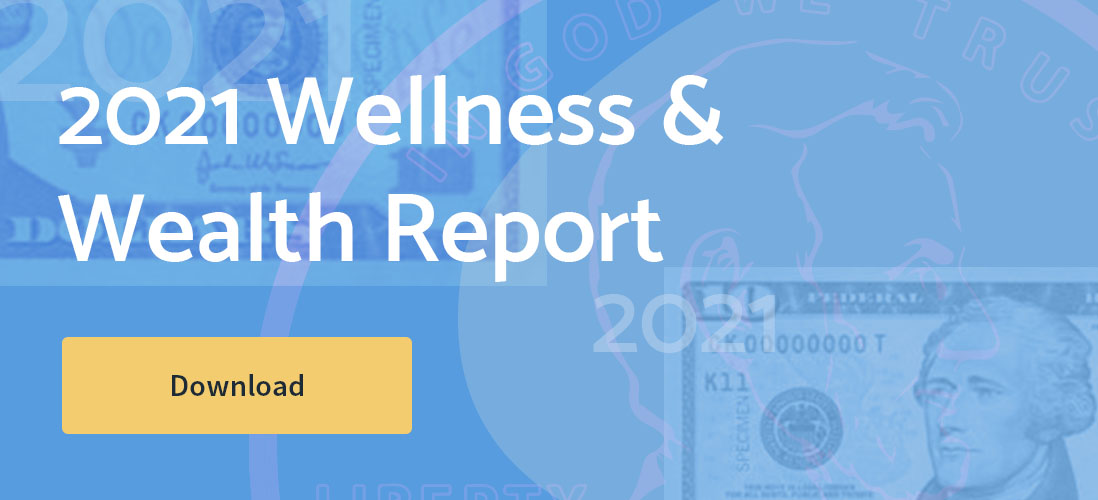2021 Wellness & Wealth Report
- Lively
- 2 min read
A survey of 1,000 randomly selected U.S. Adults was conducted to gauge physical and financial health decisions across the U.S. Rising healthcare cost, and the short-term financial impact from COVID-19, have reinforced healthcare as a top priority for employees.
It was an abnormal year for healthcare, but even with massive fluctuations in care and access, the top benefits concerns for most Americans remain the same - cost and savings. Healthcare costs are the largest area of both spend and saving after basic livelihood costs. And what is not a surprise is that COVID-19 has had an increased adverse impact on financial well-being and outlook.

The short-term financial impact of COVID-19 has been swift and damaging to many Americans. We know that COVID-19 has increased the retirement gap, and new data shows the extent of this impact: 60% of Americans withdrew funds from their IRA or 401(k) in 2020. An additional 27% borrowed against their 401(k) during COVID-19. A staggering 41% of these account holders did so to pay medical expenses.
Key findings of Lively’s 2021 Wellness & Wealth Report show:
#1: Rising medical costs are forcing Americans to evaluate their financial futures.
- Nearly one-third of Americans are worried about short-term healthcare costs, and overall, Americans expect to spend 40 percent of their retirement savings on healthcare alone.
- Due to cost, nearly half of all adults surveyed have delayed or skipped medications, and have not followed a doctor’s recommendations over concerns for how much additional care may cost.
- Only 60 percent have enough money saved for a medical emergency this year. Younger Americans, especially those aged 25-34, expressed that COVID-19 has impacted financial goals this year and long-term.
#2: Americans are showing a greater understanding of healthcare and benefits.
- The majority understand terms like insurance co-pay (84 percent), insurance deductible (80 percent) and insurance out-of-pocket expense (80 percent).
- This was an increase from 62% in 2019 (somewhat or completely understood). The increase can likely be attributed to the focus on healthcare from the pandemic.
#3: Healthcare is top-of-mind when planning for future employment: Next to salary, healthcare coverage is the most important benefit offering for employees.
- Healthcare coverage is a strong factor in employee retention, with 20 percent ranking it as the #1 benefit for staying at a job while 16 percent saying it is the #1 reason for switching jobs (compared to 22 percent and 28 percent for salary, respectively).
- HSAs are viewed as a key healthcare benefit, equally important for personal finance, healthcare and retirement financial planning and savings.
A clear requirement for employers is to address financial concerns head on—it's in everyone's best interest. Financial stress has a direct and real impact on employee productivity. The most important step is to ensure healthcare benefits bundles address a range of coverage and long-term financial concerns. Employers will come out on top by positioning their existing benefits to better address these concerns. This means introducing savings options like an HSA before health plan selection.
Disclaimer: the content presented in this article are for informational purposes only, and is not, and must not be considered tax, investment, legal, accounting or financial planning advice, nor a recommendation as to a specific course of action. Investors should consult all available information, including fund prospectuses, and consult with appropriate tax, investment, accounting, legal, and accounting professionals, as appropriate, before making any investment or utilizing any financial planning strategy.

